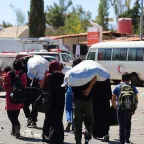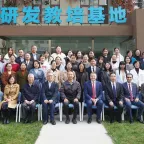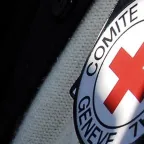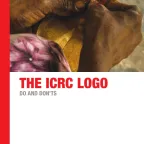South Africa: Addressing medicolegal issues
For missing persons and unidentified bodies in Africa On 12-14 June 2023, The ICRC’s African Centre for Medicolegal Systems (ACMS), DNAforAFRICA and United Nations Office on Drugs and Crime (UNODC) …
For missing persons and unidentified bodies in Africa On 12-14 June 2023, The ICRC’s African Centre for Medicolegal Systems (ACMS), DNAforAFRICA and United Nations Office on Drugs and Crime (UNODC) …
Since the 24th of September, the International Committee of the Red Cross (ICRC), has been closely monitoring the consequences of the deteriorating conflict situation in Lebanon. The movement of …

29-10-2024 ICRC(Beijing)— On October 25, 2024, humanitarian experts, medical professionals, diplomats, relief practitioners, and scholars convened in Beijing to explore the convergences of Chinese …

28th October 2024 Ladies and gentlemen, valued colleagues: Here is a horrifying number: 120. More than 120 armed conflicts rage across the globe today. While only a few capture global attention, …

The Red Cross and Red Crescent Present Five Resolutions to Tackle Global Humanitarian Challenges at its 34th International Conference Geneva (ICRC/IFRC) – The 34th International Conference of the Red …
Delivered by Ms. Laetitia Courtois, Permanent Observer and Head of Delegation in New York, 25 October 2024 Madam President, Excellencies, Less cruelty in conflict means less hatred as an obstacle to …

The following speech was delivered by ICRC President Mirjana Spoljaric at the international conference on Lebanon in Paris on 24 October. Mr President, dear ministers, colleagues, When politics …

Seven years after the conflict, families of missing are still seeking answers Families of people who went missing during the 2017 armed conflict in Marawi City, Lanao del Sur, in Mindanao, are still …

For over 40 years, the International Committee of the Red Cross (ICRC) has been working in Afghanistan, with a permanent delegation in Kabul established in 1987. The ICRC works closely with its …

The logo is the ICRC’s strongest visual symbol. It ensures instant recognition and embodies what the organization stands for. It is therefore crucial that the logo be shown consistently and correctly …

Try one of the following resources:
Created in 1863, the ICRC library, alongside the ICRC archives, provides an indispensable documentary reference on the organization itself and international humanitarian law.
International humanitarian law is based on a number of treaties, in particular the Geneva Conventions of 1949 and their Additional Protocols, and a series of other instruments.
Customary international humanitarian law consists of rules that come from "a general practice accepted as law" and that exist independent of treaty law.